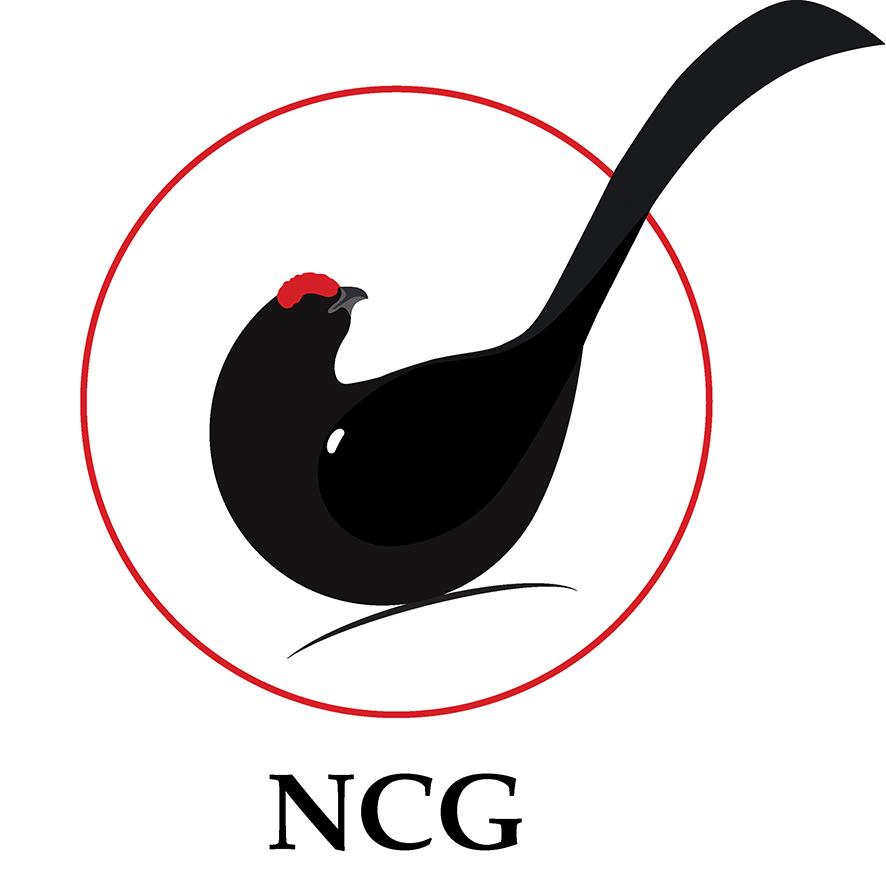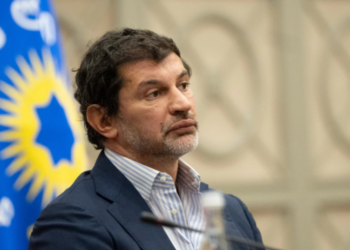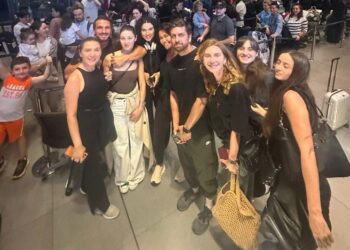Meet Kajiri-001, a bearded vulture who swallowed a knife, and who, after major surgery and rehabilitation, is now back flying around the wilderness.
The bearded vulture is one of four species of vultures in Georgia and Europe. They are known as the rarest species on the continent, and are crucially important for the ecosystem since they play a sanitary role, scavenging the detritus of decaying animals.
The bearded vulture in Georgia is known as Kravichamia, which means “lamb-eating” bird. It is still unclear why they got this name, considering the fact that their main source of food is bones. Because of this unfortunate name, they are not very admired by people, who think they will pray on their lambs and other livestock, and they are often hunted – one of the biggest threats to the species.
The main problem we see in nature conservation in general is that people simply don’t have an understanding of how important such creatures as vultures are, how they live, or why we should protect them. This is one of the reasons why our organization, Nature Conservation Georgia, is focused on awareness-raising campaigns and spreading information whenever and wherever the opportunity arises.
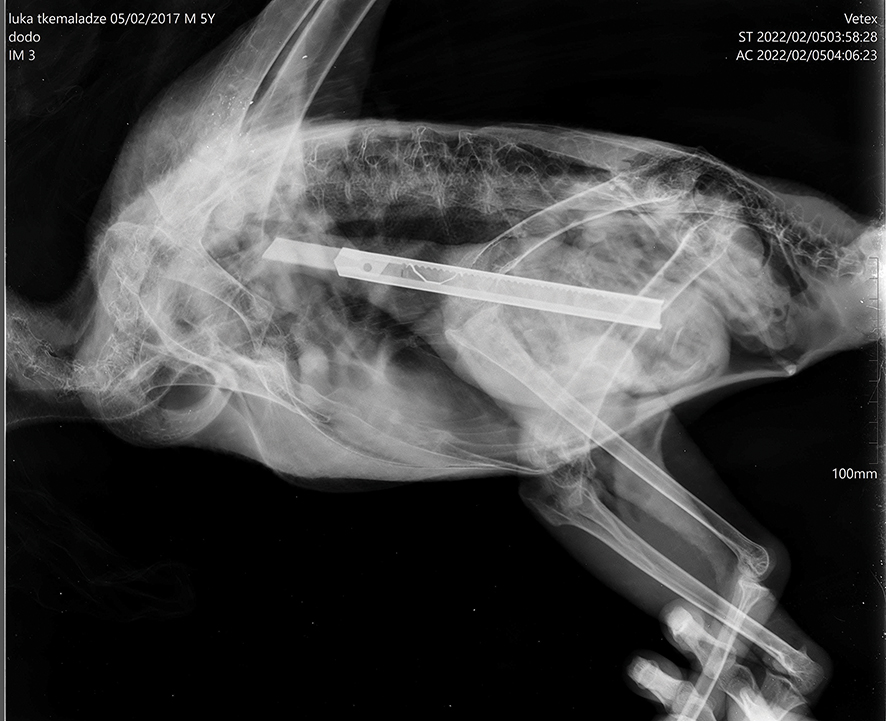
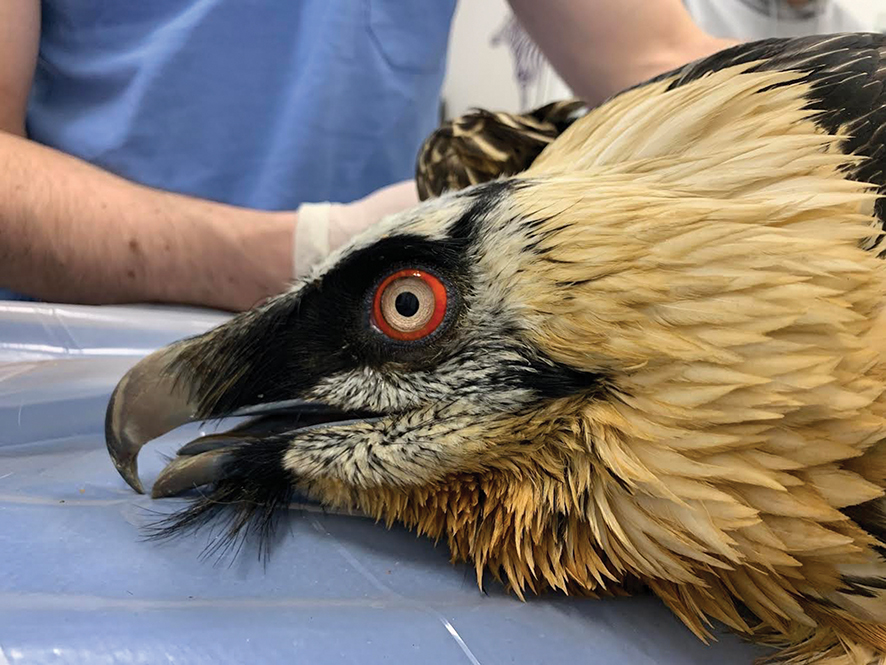
One such opportunity was given to us at the beginning of 2022, when a local found a weakened bearded vulture in Nichbisi, a small village in Georgia. They reached out to us for advice. We call it an opportunity since we were able to act on the problem, even though the incident itself was unfortunate. The fact that the bearded vulture was in such a place was already unusual, surprising in fact, since they don’t usually approach human settlements.
The bird was taken to the Vetex Clinic to find out why he was so weak. An x-ray showed he had swallowed a utility knife of the snap-off kind, which was causing some irritation, and as such he needed an urgent and major operation – the knife was about the size of a human hand! Thanks to the Vetex Clinic and their qualified staff, however, the surgery was a success, and the bird was soon able to be taken to Tbilisi Zoo for rehabilitation.
Our bearded vulture spent a few months in Tbilisi Zoo, gaining back his strength. During this period, he was given some medical treatment and gradually encouraged to get back to his natural habits.
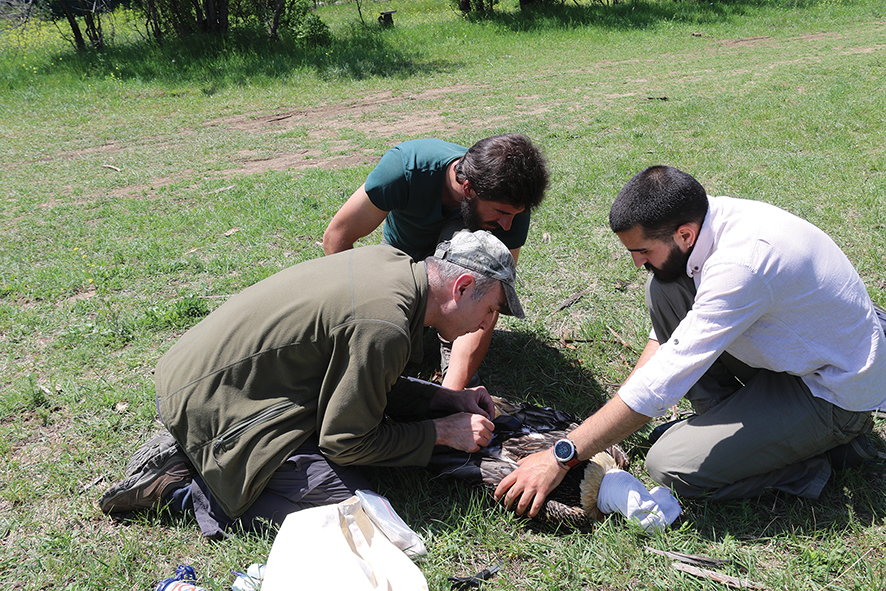
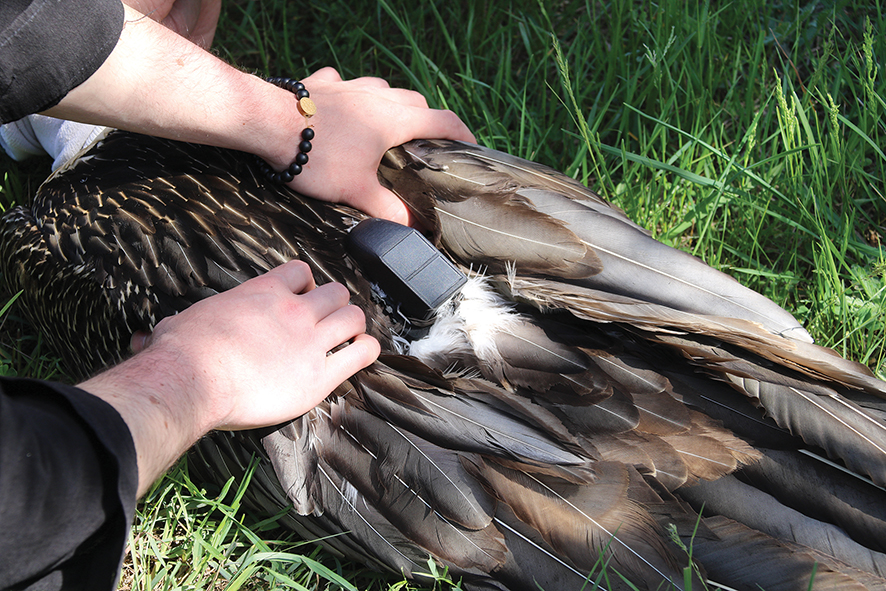
After three months, he was fully recovered and ready to be returned to his natural habitat. A release date was set.
Before the release, we got in touch with professors from Ilia State University to help get a GPS tracker to attach to him so we could collect data on his movements in the wild. We named the GPS tracker ‘Kajiri-001’ – Kajiri is an old Georgian name for vultures.
So, on the day of the release, Kajiri-001 was equipped with the GPS tracker and it was time to let him fly.
We had picked the best release spot, and supporters gathered to join us in seeing the magnificent bird head back into the wild. The scene was indescribable: everyone was silent as he took a step, spread his wings, and took to the air again. Watching Kajiri-001 fly away, healthy and free, was a truly wonderful scene to witness.
We were left grateful that, with the help of partner organizations Ilia State University, Vetex Clinic, Tbilisi Zoo and every person who took part in this action, it had been possible to get this bearded vulture safely and healthily back to the wild.
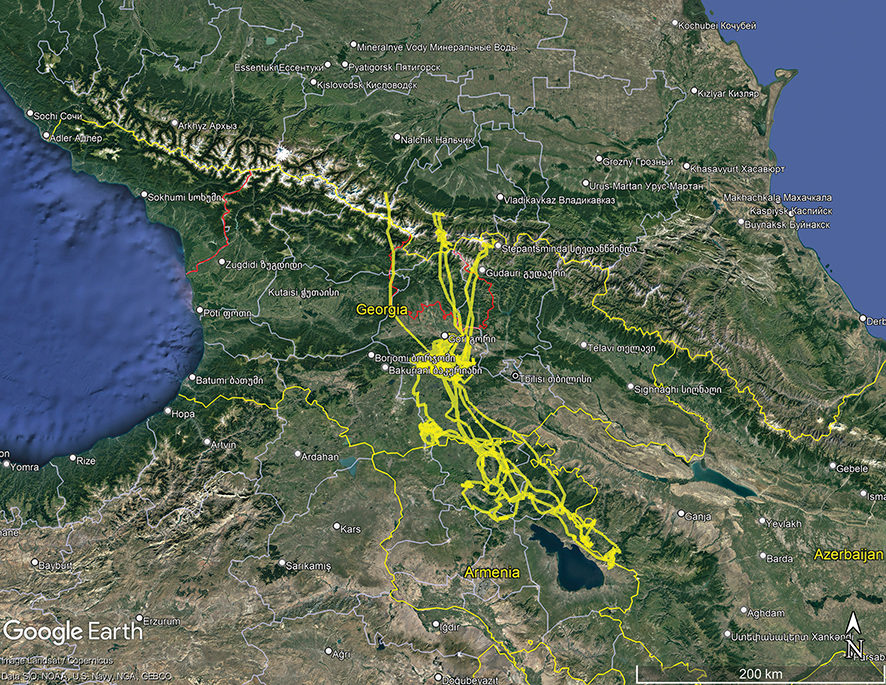
After the release date, we waited eagerly for the first records to arrive from the GPS tracker. This was delayed by cloudy weather, as the tracker is powered by solar panels, and so the first data didn’t arrive until a few days later. The news, when it came, was excellent.
With the GPS tracker we are able to track every movement of Kajiri-001, helpful not only for conservational purposes, but also to keep track in case he ran into any more problems. Hopefully, that won’t be the case, and this bearded vulture will live along life without any more injuries.
Kajiri-001 has been travelling throughout the Caucasus. He spends most of his time in Georgia, but also likes to visit Armenia, and has even crossed the border into Azerbaijan.
And as we keep a watchful and proud eye on Kajiri-001, we will continue to carry out our awareness-raising campaigns and other conservation projects, to protect, research and explore the biodiversity of Georgia.
By Nino Toriashvili of the Nature Conservation Georgia team.
